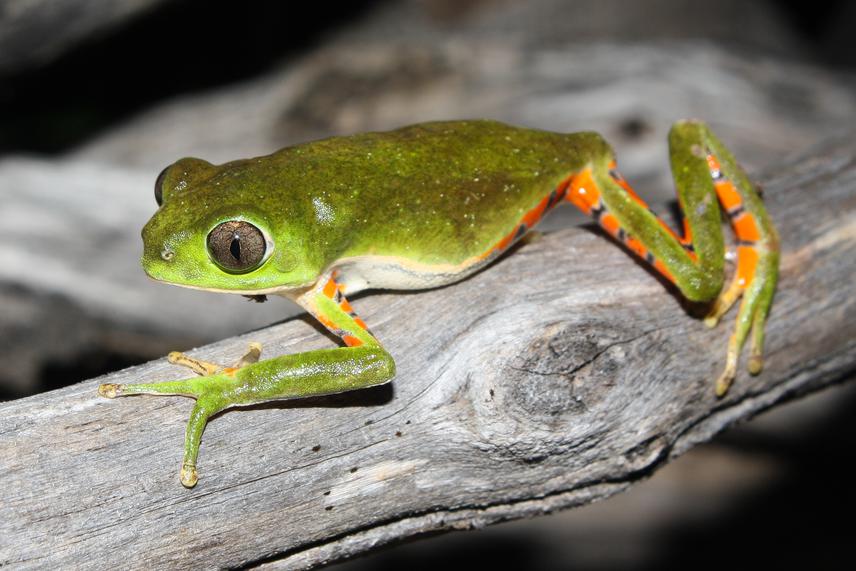Lucas Nicioli Bandeira
Other projects
9 Jul 2019
Are Neotropical Treefrogs Ecologically Labile? The Use of Information on Evolutionary Behaviour of Niches in Access to the Impacts of Climate Change
The study will bring novelties about biodiversity patterns in the Neotropics, by being the first work done with this species complex. Besides that, the study aim to advance in the understanding of the processes responsible for the origin of these patterns, which will bring contribution to the knowledge of the evolution of the Neotropical biota as a whole and in particular to a group of organisms highly dependent of environmental conditions for persistence. As such, the results will provide information that can be used as a basis for planning effective conservation strategies as well as guiding management decisions (e.g., the creation of conservation units like parks or reserves).

P. nordestinus. ©Roberto Leonam Morim Novaes.
The niche concept is amongst those most relevant within biology, as it affects most aspects of the life and history of organisms. It is important both for its application in studies of ecological and evolutionary phenomena and for integrating such aspects across different levels of organization (e.g., spatio-temporal). Here we will explore these two facets: we propose to investigate how the maintenance or modification of the niche (conservatism or evolution) influenced the diversification of a Neotropical anurans species complex and then how these tendencies may affect the ability of this group to copec with climate change.
To appreciate these objectives we will use the formalism of ecological niche modeling and species distribution models. Ecological Niche Models (ENM´s) now represent a widely used tool in ecology, evolution and biogeography. The environmental suitability that is determined by the models through the relationship between localities and their environmental properties, as well as the projections of these models in potential distribution areas, are being used not only to understand the ecological needs of species but also to solve diverse issues in areas such as population and community ecology, biogeography, evolutionary biology and conservation issues.